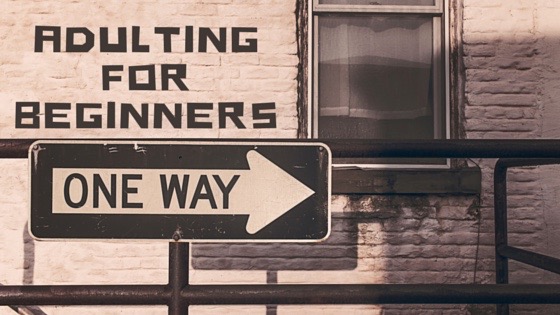I want my adulting sticker, please!
I’ve been adulting all morning. I washed, dried, and folded the linens and made the bed. Woo hoo! I cleaned the bathroom, dusted the furniture in the living room (true, to qualify for full adulting credit, I should have drawn obscene pictures in the dust first), vacuumed, and now I’m writing. And it’s not even lunch. I want my sticker, please!
In 2000, before the term “adulting” entered our lexicon (coined by blogger Kelly Williams Brown in 2011), Dr. Jeffrey Jensen Arnett introduced a new developmental stage, the “emerging adult.” Updated guidelines established by child psychologists now state adolescence ends at the age of 25, as opposed to 18. Contrary to generations past, where marrying straight out of high school or college was the norm, people use this extension of adolescence to find out who they are through their jobs and relationships. Adulthood for the emerging adult is something to try on, to test out. It’s a luxury previously unavailable to people in their twenties who had already started families.
My mother and my sister both married at 24. Love and marriage weren’t on my radar when I reached the same age. I committed to experiencing life as an emerging adult at a time when they had not yet raised the age limit of adolescence. (It figures. Just like the Baby Boomers, Millennials get all of the cool stuff while me and my fellow Gen X’ers sullenly watch and think, “But we did that too/first/better!”) Beyond focusing on my career during my emerging adult phase, I embraced the fewest adult responsibilities as possible. And then, one day when I was 27, I thought differently. I felt a little more stable in my career. Maybe falling in love would fit better into my life now?
Blame it on the Frontal Cortex
I was a late bloomer. My adult teeth came in after my classmates’. I grew two inches after I turned 18. Even my feet didn’t stop growing until I was a senior in college. [bctt tweet=”But when it comes to brain development, we’re all late bloomers.” username=”dianetheharpist”] The frontal cortex doesn’t mature until we’re in our mid 20’s. And without its maturing influence countering the emotional frenzy of adolescence, sensible decisions, impulse control, and all of the other hallmarks of adulthood are out of reach.
I didn’t know anything about the sciency stuff until later, but I did notice that most of my friends joined me in crossing this magical threshold of adulthood around the same age. It became my litmus test for potential boyfriends: if they weren’t behaving like an adult by the age of 30, I assumed they never would. I was 31, and my husband was 28 when we met. Proud owners of fully functioning brains, we embraced adult responsibilities together.
I have retained my fascination with this stage of maturity and chose to subject Ellen, the protagonist of Ellen the Harpist, to the awkward “my brain doesn’t fit” experience of transitioning from emerging to full-fledged adult. She craves being an adult and decides pursuing a romantic relationship will earn her entry into the club. Instead, she struggles throughout the novel as she reconciles her desire to choose adulthood with the reality she simply needs to grow into it.
While emerging adults and older folks who adult may share certain behaviors, true adulting only occurs when one has done this whole adult thing for a while and has grown tired of it. Give Ellen a year or two of being a mature adult, and she, too, will reach out her palm, open and close her fingers, and say, [bctt tweet=”“I just adulted. I want my sticker, please!” ” username=”dianetheharpist”]Hmm… sounds like a theme for my next book.
[fruitful_sep]
Would you like to receive blog posts and exclusive content directly in your inbox?
Sign up for my mailing list, and as a bonus, I’ll send you a free short story!

One thought on “Adulting vs. Adulthood”